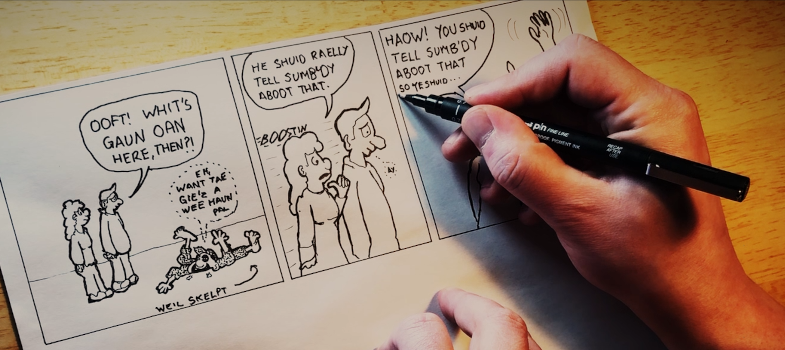Model Answer Unit 3.7 Activity 6
This is a model answer, you might have come up with different ideas and notes.
Lowing lists the 18th century elocution movement, the 1872 Education (Scotland) Act as central factors in the ‘language death’ of Scots and a changed understanding of Scots from a language in its own right to a ‘lazy’ dialect of English followed by a marginalisation of aspects of the Scottish identity. Even the implementation of the Scots language policy happened half-heartedly.
Lowing points out the discrepancies between the noble mission and claims made in the policy and the reality of the acceptance of Scots – or the lack of it – in education in Scotland.
“…[m]y own observational data revealed that some representatives in schools and governmental bodies struggled to accept Scots as a living language in its various forms. In particular, I met with several ambassadors for the Scots language in schools who struggled with the concept that Scots speakers could potentially be bilingual in Scots and English. Despite recent moves to encourage Scots in Scottish classrooms, the language does not yet appear to sit securely within the Scottish education system.” (p. 2)
-
See pages 4 and 5 for a list of the main reasons.
See pages 6 and 7 for rich and compelling examples you might find surprising, i.e. code-switching between Glaswegian, Older Scots and Scottish Standard English as a means of establishing social and cultural ‘capital’ in Scots.
An insecurity in the use of Scots in different social settings by Scots speakers
Return to Unit 3
